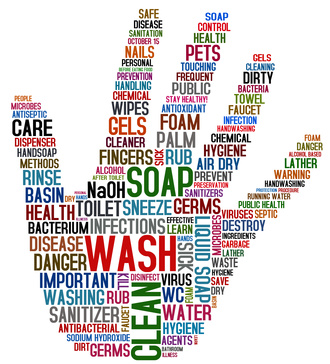Cleanliness & Hygiene

Deficient oral health has been connected to stroke and heart disease among other health issues. You can, however, raise your oral health and lessen your risk of health problems by changing particular habits.
The amount of care you give to your teeth and gums has a strong effect on your general health. Neglected oral health leads to more than just hurting teeth and bad breath, it can introduce all kinds of health issues including oral cancer.
Researchers have discovered a possible connection between gum issues and stroke, heart disease, bacterial pneumonia, and even pregnancy issues.
Most dentists recommend having your teeth professionally cleaned every 6-12 months to reduce the likelihood of periodontal disease progressing. In between routine cleanings, good oral hygiene at home is vital to prevent tarter build-up and gum disease.
Infection controls and universal precautions protect clients and staff alike. Everyone benefits from rigorous infection control — you, your dentist, and the dental team. The cornerstone in a good and safe dental practice is the element of trust. You should feel free to discuss this topic with Dr. Bhairavi and receive a straightforward answer.
Cleanliness & Hygiene measures include:
- Disinfectant hand soap
- Gloves and face masks
- Chemical disinfection of countertops and surfaces
- Sterilization of all equipment before every use
- Disposable materials
We sterilize all reusable equipment, including dental handpieces. We use an autoclave, a device that kills bacteria and viruses by steam, heat, and pressure.
The best defense against disease is information. The more you know, the better equipped you are to make wise decisions about your health care. The more you know about our daily procedures and policies, the more comfortable you will feel.
Mouth and Teeth- Brushing teeth two times every day is an important part of oral hygiene. Use a toothbrush with soft bristles in a size that fits into all areas of the mouth easily.
Flossing between teeth once each day is also important for removing bacteria from between teeth and under gums. Not brushing and flossing teeth regularly can lead to issues with teeth.
Bacteria will cover teeth, which leads to plaque and tartar build-up. Over time, cavities will occur and tartar will damage teeth and become hard to remove.
Not brushing could also lead to unhealthy gums because the brushing action stimulates gums and keeps them healthy.
Dentists use specialized instruments to gently remove these deposits without causing harm to the teeth. All dental instruments are put through a stringent cleaning, disinfecting, and sterilizing procedure to ensure safety and quality control.
A dental mirror will also be used to help the dentist inspect hard-to-see areas in the mouth. Dental mirrors feature elongated handles generally connected to round mirrors.
A dental mirror can help the dentist observe the teeth and gums for signs of irritation, swelling, decay, tarter, or bleeding. The first tool that is generally used to clean teeth is an ultrasonic instrument.
This device uses mild vibrations to loosen larger pieces of tarter. It also sprays subsequent mists of cool water to wash away loose debris.
The tips of the ultrasonic instrument are rounded and curved and kept in constant motion. The settings on the device can be adjusted for the patient’s comfort.
The majority of dental patients find routine teeth cleaning to be painless. The cooling mist of water, mild vibrations, and the pressure felt during “scraping” do not generally cause discomfort.
It’s important to let your dentist know if the cleaning is beginning to cause pain so that they can recommend alternative options to make your teeth cleaning more enjoyable.
Most dental cleanings last between 30 minutes to an hour on average and are performed in a lying position in a comfortable dental chair.
After professional teeth cleaning, you may notice that your teeth feel fresher and look brighter. Teeth cleaning procedures are designed for more than just appearances.
Professional teeth cleaning treatments are the primary means of preventing and treating periodontal disease and maintaining tooth health.